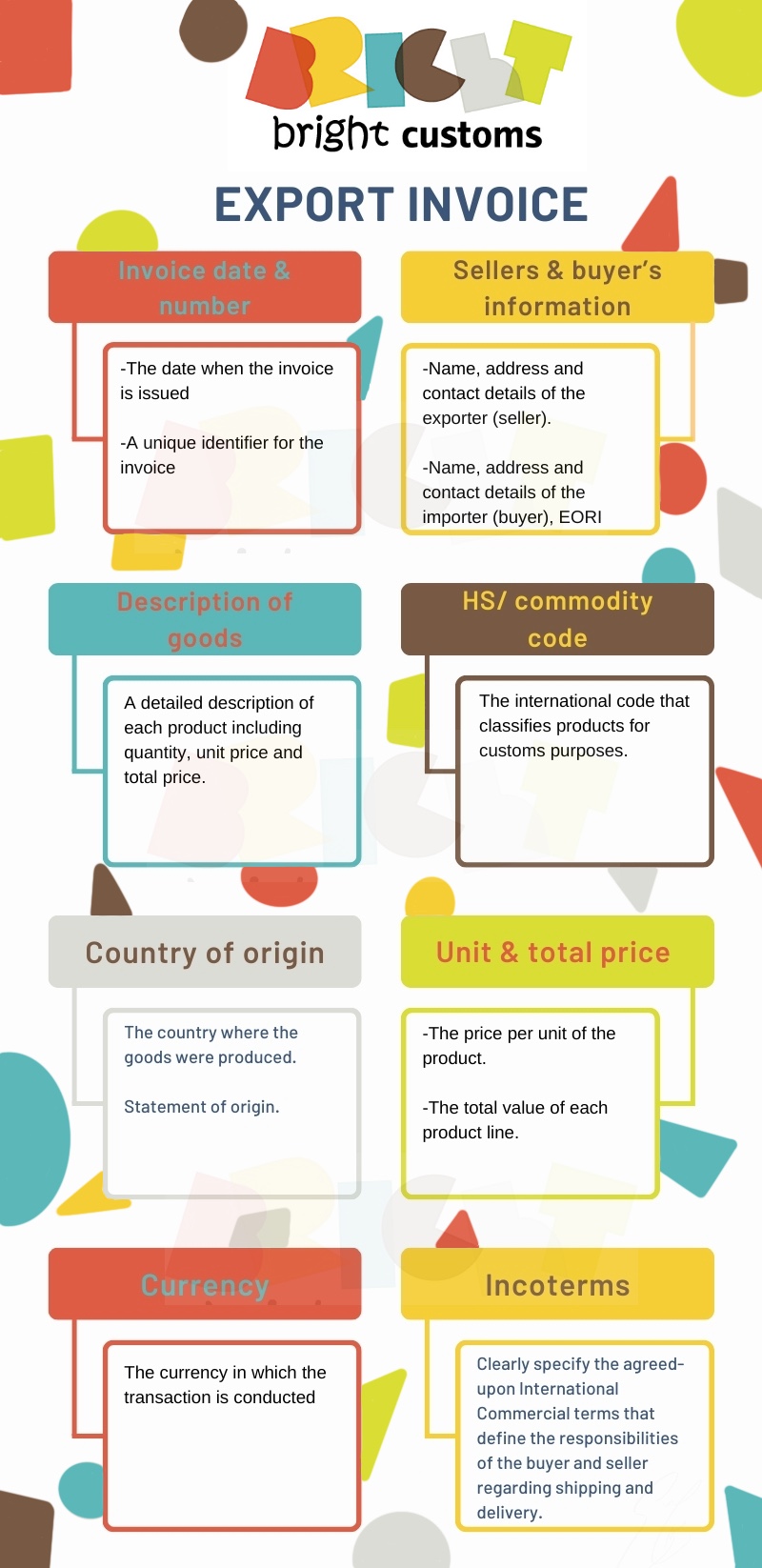Guideline: Creating a comprehensive export invoice
Creating a comprehensive export invoice is crucial for international trade, providing a clear record of the transaction and facilitating smooth customs clearance. Here's a guideline on the information typically required on a UK export invoice:

All information marked in orange is mandatory.
-
Header Information:
- Invoice Date: The date when the invoice is issued.
- Invoice Number: A unique identifier for the invoice.
- Seller's Information: Name, address, and contact details of the exporter (seller).
- Buyer's Information: Name, address, and contact details of the importer (buyer).
-
Product Description:
- Description of Goods: A detailed description of each product, including quantity, unit price, and total price.
- Harmonized System (HS) Code: The international code that classifies products for customs purposes.
- Country of Origin: The country where the goods were produced.
-
Pricing and Payment Terms:
- Unit Price: The price per unit of the product.
- Total Price: The total value of each product line.
- Currency: The curency in which the transaction is conducted.
- Incoterms: Clearly specify the agreed-upon International Commercial Terms that define the responsibilities of the buyer and seller regarding shipping and delivery.
-
Shipping Information:
- Port of Loading: The port where the goods are loaded onto the vessel.
- Port of Discharge: The port where the goods are unloaded from the vessel.
- Method of Shipment: Specify whether it's by sea, air, land, or a combination.
- Vessel/Flight Details: Provide details such as the name of the vessel or flight number.
-
Payment Information:
- Payment Terms: Clearly state the agreed-upon terms of payment (e.g., letter of credit, advance payment, open account).
- Bank Details: Include the exporter's bank details for payment.
-
Additional Charges:
- Shipping and Handling Costs: Specify any additional charges related to transportation.
- Insurance Costs: If applicable, include the cost of insurance for the shipment.
-
Customs Information:
- EORI Number: Economic Operator Registration and Identification number for customs clerance.
- VAT Number: If applicable, include the Value Added Tax registration number.
-
Declaration of Origin:
- Statement of Origin: Declare the origin of the goods as required by customs regulations.
-
Signatures and Certifications:
- Authorized Signatures: Signtures from authorized personnel representing both the exporter and the importer.
- Certificates: Attach any required certificates, such as a certificate of origin or phytosanitary certificate.
-
Terms and Conditions:
- Terms of Sale: Clearly outline the terms and conditions of the sale.
- Dispute Resolution: Specify the method of dispute resolution in case of conflicts.
It's very important to stay informed about any specific requirements for the destination country and industry-specific regulations. Always consult with customs authorities and trade experts for the most accurate and up-to-date information.


 Polski
Polski Deutsch
Deutsch Slovenský
Slovenský български
български